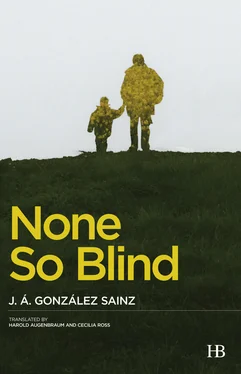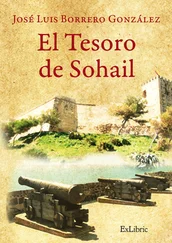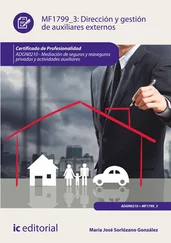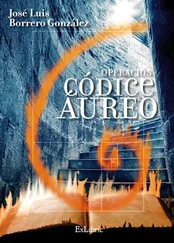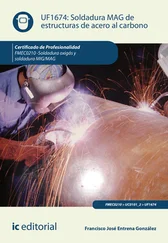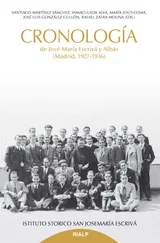Perhaps obeying the same instinct, she, too, went to gather mud from the irrigation ditch and then set about rubbing it over his face, over his forehead and his cheeks and his mouth, to the point of pretending to suffocate him, and then over his chest and his legs and his pubic area. Completely coated, as if they were mud sculptures of themselves, they began gamboling and gesturing and moving like primitive creatures, fragile creatures, but at the same time creatures of great power who shrieked without words and moved without meaning, and then, giving themselves no time to laugh or howl, they sprang toward the riverbank and, sunken deeply into the silt, he dissolved his mud into hers and into the river’s mire, penetrating her again as if that would allow him to encompass everything, just as the mud had soaked in through their pores and mucked up their hair and their bodies and thus become one with them somehow forever. Then they rested, a rest to end all rests, the resting of matter in matter, of breath in light, the resting of image in mud, of cessation in the river, of creation in nothingness.
After a time, after a time they’d have been hard pressed to judge whether infinite or infinitesimal, a single instant, and as if there existed something to be frightened of in the face of such unaltering plenitude, they leapt up and ran to a pool in the river a few yards away. Until that moment, until that moment that seemed to him to contain or to be the consummation of all the previous moments of his life, he had always swum there alone, or in the company of his father, but from that day on, the memory of the smell of her body that afternoon, of her body or the mud, and the memory of the shrieking and the laughter, the dunking and the flailing and the splashing of that time so infinite and yet so fleeting, would conjure up for him, indelibly and forever, the sound and the smell of paradise, the raindrops, lit up and hanging there for just a moment, that would make the dark background against which they shone have less power to absorb everything and swallow it all up.
Suddenly, shots rang out from some poacher, disorienting them. They couldn’t tell if they had sounded from far away or close by, just behind them, or if they’d just begun or it had been going on for a good while and they’d only noticed them right then, and they hurried back to look for their clothes, as if they’d only just then realized they were naked. She wanted to cover herself with her hands as soon as she got out of the water, her breasts and her pubic area and her face if she could have, and he thought about doing it, too, but then he burst out laughing. What are you doing, he asked her. Don’t tell me you’re embarrassed?
12
Back in his village, to which he had been returning for a few days at a time in summers, at first with his wife and two sons and then gradually only occasionally, with Felipe, a good part of the people he had known and who had made up his world had either died or gotten very old, some sick and in wheelchairs in the nursing home, others debilitated, feeble, and weak, and those he remembered as energetic and chatty were now often listless or just waiting out their time.
It’s true that some houses had been fixed up or, as people put it, made decent, but it had been done with a new, out-of-control sort of bad taste that was contagious — contagious as only stupidity can be, he recalled having heard his father say — and stood out even more in a place where what little there was was at least harmonious and could therefore seem like a lot. Neither the materials used — he thought — nor the improvement ideas they had come up with were appropriate there, and they would never be appropriate, and that’s just the cases when the old houses, some of which were unquestionably valuable and elegant, hadn’t been torn down completely in order to erect bland apartment buildings like the one he’d been living in for the past twenty years.
You might say that from a certain moment on, people had stopped caring a fig — a flying fig, he emphasized, not a whit, less than a whit — about what had been in those places before or how things were done before; people had begun not to care even the least bit about things that were right in front of their noses, or beside them, or behind them. Their relationship with the adjacent, he said to himself, their relationship with the adjacent, and he stopped then to think a moment. Everything seemed to have begun continually bumping up against everything else, lines, dimensions, shapes, all bumping up against everything, against everything except bad taste and conceit. Could this be the new thing, the new era? And what comes after bad taste, he wondered. What came before conceit?
Even the insides of houses had changed, and when he visited people at their homes, the same accumulation of junk, furniture, and the most disparate of décor, which seemed to be arguing with its own owners, was at times suffocating to him, even from the very first moment of stepping inside. How eager everyone is to fling themselves into the arms of the worst, to thoughtlessly abandon whatever little or much they actually have! — he marveled. Is it really so hard to figure out how to embrace the best of the new and set aside the worst of the old that people so often end up doing just the opposite? What pride in one’s own judgment and what stubbornness of vision doesn’t run the risk of eventually taking hold of everything?
“I’m going to leave everything as is,” he said to his son Felipe. “I’ll install heating, I’ll change the plumbing and the lighting fixtures, the bathroom and a few things in the kitchen, and the rest will stay the same. White, with the same sideboard and the same pantry and the same four chairs as always, which I’ll have reupholstered. How does that seem to you?”
It seemed good to him, and it also seemed to him that his father now had the chance to remake his life, to resume it, to breathe again the breath of things that had made him what he was and afforded him the fortitude he possessed, and foremost among the first several things he resumed, just as if it were actually himself he was resuming, was his walk along the road to the field by the river.
But that day, which might rightly be said to be the first day in twenty years when he went back to doing what he should probably never have stopped doing in the first place, when he saw that the weather had quickly turned as stormy as it had been on the last of the afternoons he had walked along the road after having walked along it almost daily for so many years, he wondered what that coincidence might mean, if things in fact meant anything, or if they merely happened and we were the ones who implored them to say something to us.
Do things resume when we resume them? — he put the question to himself again. Or is it simply that we give free rein to a feeling of nostalgia for something that has gone forever because it is in its nature to be always going, not only in terms of time but even of space, away from us, and perhaps in exactly the same measure as we ourselves are going?
13
Just as on that other day twenty years ago that was so different and yet such a mirror image of this one, as soon as he sensed the storm descending on him, he gathered everything up hurriedly and locked the old door that time and lack of care had turned completely gray. Without pausing even a moment, so that the downpour wouldn’t catch him out on the road, he went up the pathway flanked by patches of elder, bisnaga, and danewort until he got to the path that would take him back to the village. In total, from the little door of gray, rotten wood to the great, sturdy door with the bronze knocker at his house on the outskirts of the village, it wasn’t much more than two and a half miles along a road that was much more than a mere road to him or a simple connection between two points, it was in fact his character and the mettle of his life, the nature of his inclination toward the world, and his renunciation of or disappearance from it. It was also a good portion of his understanding, as if he had gradually been forging his experience of life and his relationships with people on that path, on that low coming and going and ruminating on what he saw and seeing what he was ruminating about, on that measured placing and settling of things, seeing the common in the different and seeing things that were the same differently, accepting the slings and sorrows of life — by allowing the positive to reign — gradually moving beyond his personal emptinesses and solitudes while listening to the impenetrable sound of the water in the river and the wind in the leaves of the poplar trees, which he interpreted differently depending on the day and the light and the season. That, perhaps more than any other source, is where he got that sort of silent energy of his from, and his rare, taciturn, melancholic wisdom, which was as thoughtful as could be imagined and at the same time resolute and forceful, and which some people chalked up, for the sake of chalking it up to something, to his reading.
Читать дальше
